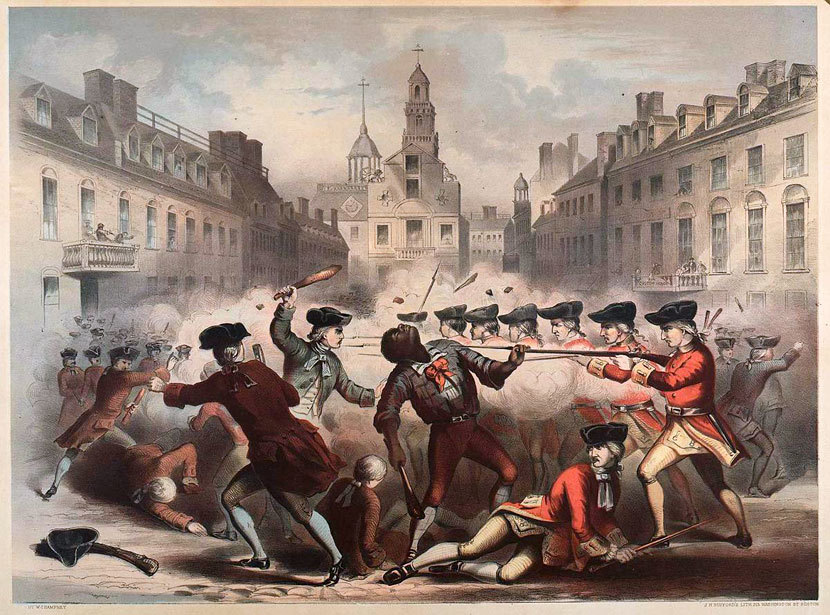Joseph Warren (1741–1775)
From The American Revolution: Writings from the Pamphlet Debate 1764–1776

Today, March 5, is the 250th anniversary of the Boston Massacre.
“Not the battle of Lexington or Bunker’s Hill, not the surrender of Burgoyne or Cornwallis were more important events in American history than the battle of King Street, on the 5th of March, 1770,” John Adams wrote more than four decades later, during his retirement. “The town of Boston instituted an annual oration in commemoration of this catastrophe. . . . they have been continued for forty-five years.”
In the years immediately following the incident, Joseph Warren, a physician, was one of the orators who delivered the annual address on “the danger of standing armies, stationed in populous cities in time of peace” — and he was the chosen speaker twice. The second time, in 1775, he showed up in a toga and defiantly gave his speech in spite of the British soldiers who menaced the crowd. Three months later he was killed at the Battle of Bunker Hill.
For our Story of the Week selection, we present Warren’s first Boston Massacre oration, which was delivered on the second anniversary in 1772. His speech denounces the actions — taxation without representation, as well as the standing army in the city — that led to the tensions between the British and the colonists.
Read “The Bloody Tragedy of the Fifth of March, 1770” by Joseph Warren



